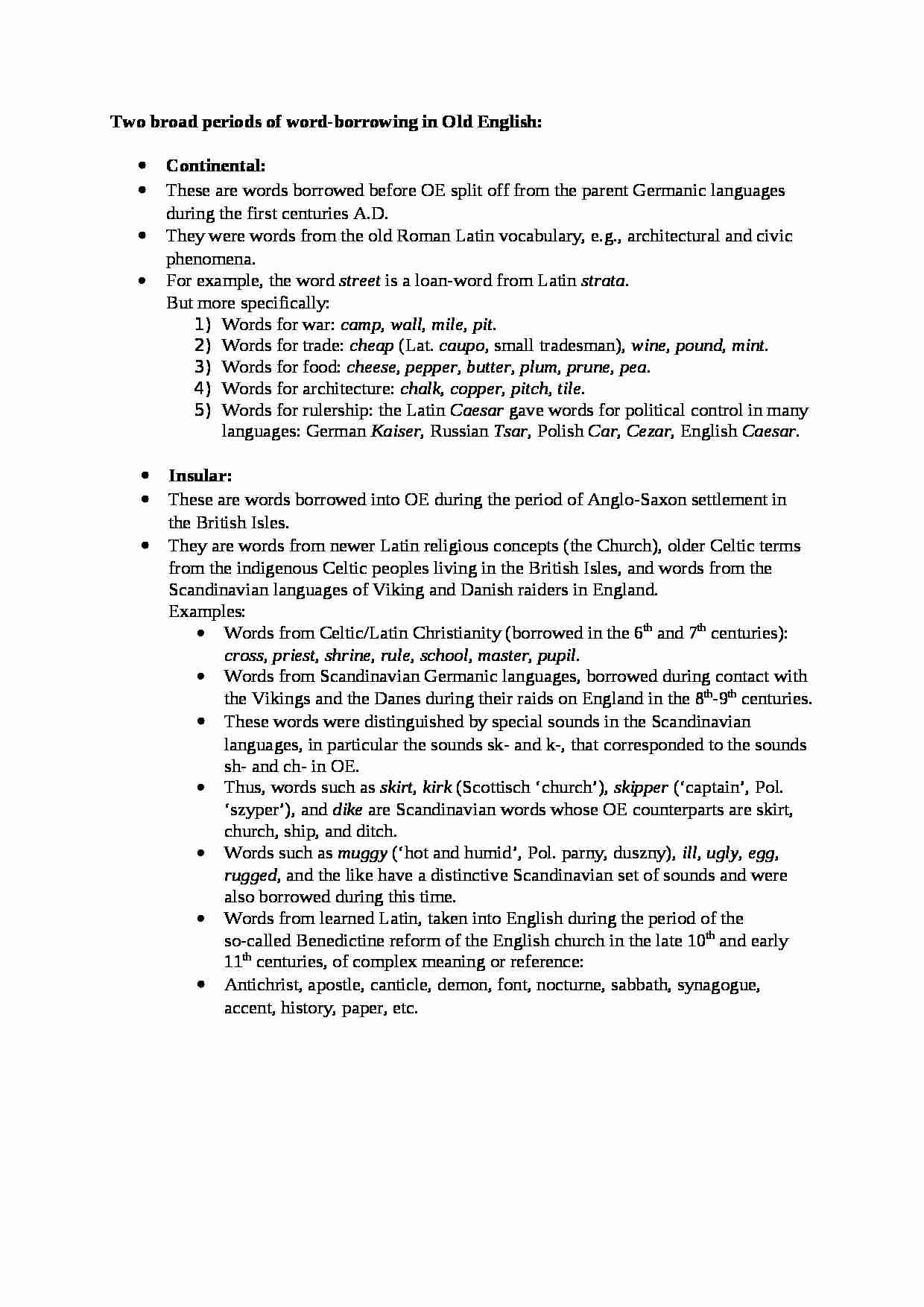Two broad periods of word-borrowing in Old English:
Continental:
These are words borrowed before OE split off from the parent Germanic languages during the first centuries A.D.
They were words from the old Roman Latin vocabulary, e.g., architectural and civic phenomena.
For example, the word street is a loan-word from Latin strata.
But more specifically:
Words for war: camp, wall, mile, pit.
Words for trade: cheap (Lat. caupo, small tradesman), wine, pound, mint.
Words for food: cheese, pepper, butter, plum, prune, pea.
Words for architecture: chalk, copper, pitch, tile.
Words for rulership: the Latin Caesar gave words for political control in many languages: German Kaiser, Russian Tsar, Polish Car, Cezar, English Caesar.
Insular:
These are words borrowed into OE during the period of Anglo-Saxon settlement in the British Isles.
They are words from newer Latin religious concepts (the Church), older Celtic terms from the indigenous Celtic peoples living in the British Isles, and words from the Scandinavian languages of Viking and Danish raiders in England.
Examples:
Words from Celtic/Latin Christianity (borrowed in the 6th and 7th centuries): cross, priest, shrine, rule, school, master, pupil.
Words from Scandinavian Germanic languages, borrowed during contact with the Vikings and the Danes during their raids on England in the 8th-9th centuries.
These words were distinguished by special sounds in the Scandinavian languages, in particular the sounds sk- and k-, that corresponded to the sounds sh- and ch- in OE.
Thus, words such as skirt, kirk (Scottisch `church'), skipper (`captain', Pol. `szyper'), and dike are Scandinavian words whose OE counterparts are skirt, church, ship, and ditch.
Words such as muggy (`hot and humid', Pol. parny, duszny), ill, ugly, egg, rugged, and the like have a distinctive Scandinavian set of sounds and were also borrowed during this time.
Words from learned Latin, taken into English during the period of the so-called Benedictine reform of the English church in the late 10th and early 11th centuries, of complex meaning or reference:
Antichrist, apostle, canticle, demon, font, nocturne, sabbath, synagogue, accent, history, paper, etc.
... zobacz całą notatkę



Komentarze użytkowników (0)